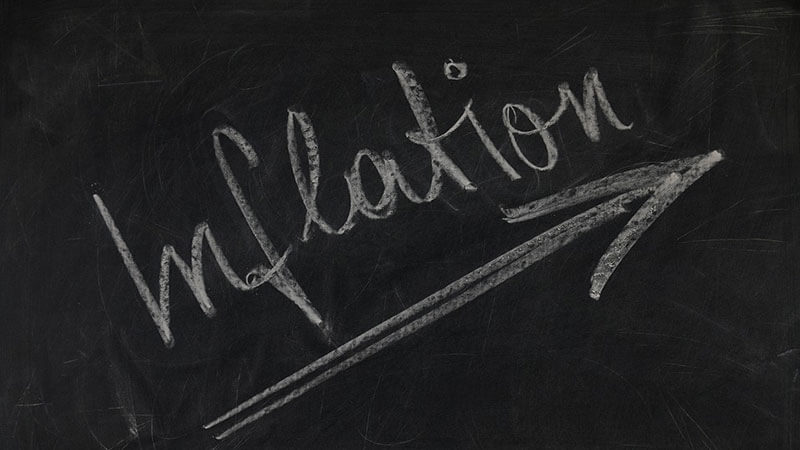Recently, the CBDT (Central Board Of Direct Taxes) have notified the Cost of Inflation Index (CII) which will be effective from 1st April 2017. This will be applicable from Fy/PY 2017-18 (AY 2018-2019) onwards for which the Base Year is shifted to 2001-02. Until 31st March 2017, the capital gain was being calculated with the year 1981 as the Base Year. Now, the Base Year is shifted to 1st April 2017. In this article, I will give you the Cost Index that is to be used now for calculating Long-Term Capital Gain on Sale of gold, unlisted shares, and real estate. You will also get an overview of Indexation and Long-term Capital Gains.
Contents
What is Indexation and what Tax will be applicable on Long-Term Capital Gains?
Indexation is a reference to the adjustment that is made in the price of an investment for the inflation rate during the time period for which it was held by a single person. When the gains from a sale (of an asset from the tax point of view) are calculated, this inflated price is considered as the purchase price. You have to pay capital gain when you sell gold, property, shares etc.
You can use the CII for calculating Long-Term Capital Gains to reduce tax when you hold an asset like property for 2 years and unlisted shares, mutual funds, gold for 3 years or more.
You can easily calculate the new purchase price by using CII by using the formula given below:
Indexed Cost of Acquisition=(Cost of Acquisition * Cost of the Inflation Index (CII) for the year in which the asset was sold/transferred.)/The cost of Inflation Index (CII) for the year in which the asset was first bought by the assessee OR FY 2001-02, whichever is later.
Now I’ll give you an example of how this cost of acquisition will be calculated by using CII.
Example: Ramesh bought a property in FY 2003-04 at Rs 40 lakh when the CII was 110. He then sold this property for Rs 90 lakh in FY 2015-16 when the CII was 240.
If Ramesh does not consider the indexed cost, then his gain would be Rs 50 lakh (90lakh – 40 lakh). But, as Ramesh held this property for more than 2 years, he is applicable to use CII for reducing the tax. Therefore, the new purchasing price with CII will be calculated as-
Indexed Cost of Acquisition (Purchase Price) =(40,00,000 * 240)/110=Rs.87,27,272.72 (About 87 lakhs).
Therefore, Ramesh got the Long-Term Capital Gain = Selling Price-Indexed Cost of buying property=90,00,000 – 87,27,272.72 = 2,72,727.27 (about 2.7 lakh)
Impact of Change in Base Year For Calculation of Capital Gains
India’s Finance Minister Arun Jaitley, in his Budget 2017, had proposed to change the base year for calculation of indexation benefit from 1981 to 2001. This change in the Base Year is applicable to all assets but its impact will vary for different assets which enjoy indexation benefit on long-term capital gains.
Cost of Inflation Index from Financial Year 2001-02 to Financial Year 2017-18
| SI. No. | Financial Year(FY) | Assessment Year(AY) | Cost Inflation Index |
| 1 | 2001-02 | 2002-03 | 100 |
| 2 | 2002-03 | 2003-04 | 105 |
| 3 | 2003-04 | 2004-05 | 109 |
| 4 | 2004-05 | 2005-06 | 113 |
| 5 | 2005-06 | 2006-07 | 117 |
| 6 | 2006-07 | 2007-08 | 122 |
| 7 | 2007-08 | 2008-09 | 129 |
| 8 | 2008-09 | 2009-10 | 137 |
| 9 | 2009-10 | 2010-11 | 148 |
| 10 | 2010-11 | 2011-12 | 167 |
| 11 | 2011-12 | 2012-13 | 184 |
| 12 | 2012-13 | 2013-14 | 200 |
| 13 | 2013-14 | 2014-15 | 220 |
| 14 | 2014-15 | 2015-16 | 240 |
| 15 | 2015-16 | 2016-17 | 254 |
| 16 | 2016-17 | 2017-18 | 264 |
| 17 | 2017-18 | 2018-19 | 272 |
Hope you found this article useful. For further queries or suggestions, please leave a comment below.


Join the discussion